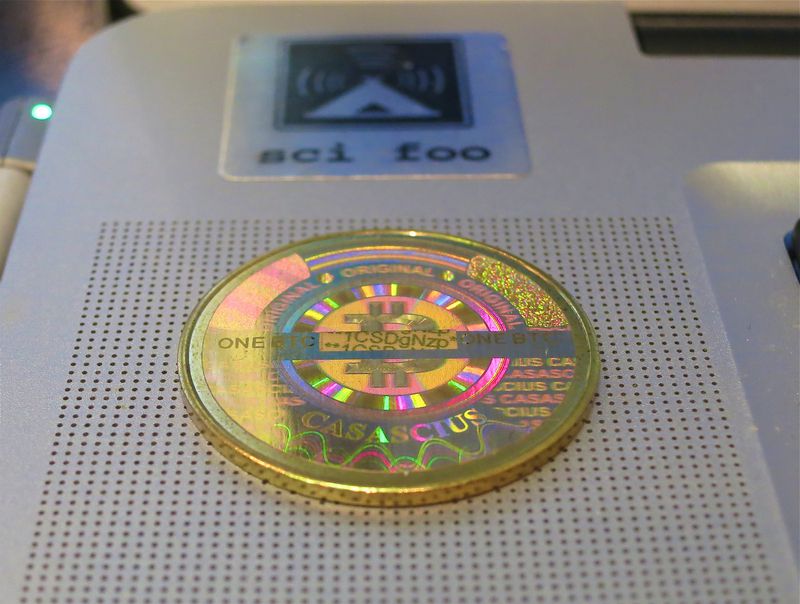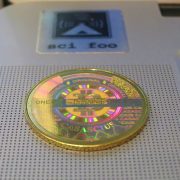E payment or e- stored value card? What we learned from the 8195 Case
Author: Jamie. C. Yang, translated into English by Bonita Chang
The financial industry is heavily regulated by the government for protection of consumers’ rights and prevention of financial crimes such as money laundering. Such regulations include requirements for certain financial businesses to apply for licenses in advance, and prosecuting those operating without a license with criminal penalties and heavy fines. Since FinTech is rapidly developing, the financial laws may be ambiguous or contain loopholes. However, criminal penalties provided in financial laws are still part of criminal law and therefore should follow the criminal law principle of no penalty without a law. The rules should never be interpreted broadly even in face of public pressure; otherwise, it would create a chilling effect within the FinTech innovative community. Such negative effect is not mendable by the Digitized Financial Environment 3.0 policy, FinTech Innovation Experiment Regulation Draft Bill nor any public reward and innovation policies.

A Bitcoin You Can Flip by Steve Jurvetson is licensed under CC BY 2.0
E-commerce began in Taiwan very early; it has flourished long before terms such as third party payment, e-payment become prevalent. B2C e-commerce is a three way relationship: buyer, seller and e-commerce platform. The platform serves as a third party both the seller and buyer can trust; it holds on to the buyer’s deposit, and after the buyer inspects the quantity and quality of the product, it will only then disburse payment to the seller. Such trading mechanism solves the problem of distrust between buyers and sellers as well as a deadlock situation in which the seller and buyer are both reluctant to be the first to send out the product or make payment. The buyers’ payment methods are usually bank transfer, ATM transfer or credit card payment online. However, with the exception of credit card payment, the other two methods still require leaving the house, which is inconvenient.
ADDCN has been running a website called 8591 since April 2007; it is an e-commerce platform for trading online game characters and treasures. Users of this website are relatively young and they usually do not own a credit card. If all payments must be made at bank counters or at convenience stores, it would cause great trouble to the users. Therefore, 8591 issued T points as the platform’s “currency” (the exchange ratio of T point to NTD is 1:1); it allows a buyer to purchase T points in advance and deposit them into a virtual account then transfer their T point to the seller’s virtual account during the trade.
Meanwhile, Taipei Rapid Transit Corporation was ardently campaigning for new features for its EasyCard including micropayment and digital wallet. The company’s effort is evident when Legislator Shou-Jong Ding (丁守中) stated in the 7th meeting between the Ministry of Finance and the Ministry of Transportation (April 21, 2008), “Most of the world’s developed cities have some type of stored value card. Singapore has EZ-link, Tokyo has Suica Card, and Hong Kong has Octopus Card. These electronic stored value cards are just like our EasyCard – all very prevalent in public transportation systems and have the function of micropayment as well as digital wallet.” Act Governing Issuance of Electronic Stored Value Cards was implemented on January 2009, which allows EasyCard to be used for micropayments. The Act commands running an e-value stored card business must be approved by the Financial Supervisory Commission: saving user deposits in a trust account and acquiring an escrow from the bank.
Many trading conflicts occurred on the 8591 website. Moreover, users were “making deposits” through purchasing T point on the website which created an image of illegal deposit taking and hit the administration’s sensitive nerve. However, the Act Governing Electronic Payment Institutions has not been implemented yet, and it appeared 8591 is unregulated. On February 2013, the Financial Supervisory Commission notified ADDCN for violating Act Governing Issuance of Electronic Stored Value Cards on the grounds of running a stored value card business without a license. The company was prosecuted and investigated. On August 2014, New Taipei City’s Prosecutor Office indicted ADDCN’s chairman and two managers. After a two-year trial, the New Taipei City Court ruled that 8591 is not an e-stored value card business and found the three to be not guilty.
At first glance, it is difficult to associate 8591 with a business such as EasyCard. However, Act Governing Issuance of Electronic Stored Value Cards Article 3 Clause 1 Sub Clause 1 stated, “Electronic Stored Value Cards – shall mean an IC chip, card, certificate or other forms of debt obligation that uses electronic, magnetic or optical means to store monetary value and performs the function of data storage or computing, and is used for multiple payment purposes.” There seems to be room to interpret if that “any forms of debt obligation” includes virtual accounts. Because of this, prosecutors aggressively indicted the operators of the 8591 website.
However, this Article generalizes the rule (any forms of debt obligation) and provide some examples (chips, cards, certificate). Under ordinary legal interpretation, to fall within the generalized rule, an item must be similar to the examples – in this case, a solid card. Moreover, during the legislation process, legislators specifically targeted smart card/IC card and defined the e-stored value card in the image of EasyCard; 8591’s business model was not considered at all.
Moreover, The Act Governing Electronic Payment Institutions was implemented in 2015; it stated in Article 4 Clause 2, “For business operation of receiving deposits by an electronic payment institution, if the applicable provisions in the Act Governing Issuance of Electronic Stored Value Cards contradict the provisions in this Act, this Act shall prevail.” In other words, if a business receiving deposits falls within the definition of electronic payment, then it would not be deemed as an electronic stored value cards business, and the business owner need not to apply for two licenses. Consequently, 8591’s method of users paying with T points should be electronic payment – therefore not an electronic stored value cards business.
If 8591 begins its operation today, the company unquestionably has to apply for an electronic payment institution license. Yet when 8591 was accused of running its business without a license, the Act Governing Electronic Payment Institutions has not been promulgated, which makes the company not subjected to either rules. Since FinTech is rapidly developing, it is very likely that there are loopholes and ambiguities in financial laws. Even so, the correct way is still to legislate appropriate rules and not overstretch other laws to cover an unanticipated incident. Such ambiguous legislation and expansive law enforcement will create a chilling effect for the financial technology community that may lead to people giving up on Taiwan’s market; this policy is damaging to the FinTech field.




Leave a Reply
Want to join the discussion?Feel free to contribute!